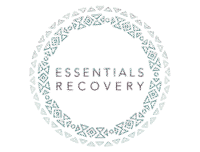Recovery from addiction is not a solitary journey. While the individual may be the one receiving treatment, the support of family members often plays a pivotal role in the success and longevity of recovery. Families provide emotional support, help reinforce healthy routines, and offer a sense of belonging and accountability. When involved in a thoughtful and informed way, loved ones can be a cornerstone of the recovery process.
At the same time, addiction often causes deep stress and damage to family dynamics. Trust may be broken, communication strained, and emotions raw. Family involvement in recovery is not about ignoring these challenges but about working through them to foster healing for everyone involved. Engaging loved ones in the recovery process means recognizing their pain, educating them about addiction, and empowering them to become part of the healing journey.
The Impact of Addiction on Families
Addiction affects more than just the person using substances. Family members often experience feelings of helplessness, fear, guilt, and resentment. Roles within the family may shift as members attempt to cope with the instability that addiction brings. Children may take on caregiving responsibilities, spouses may become overly controlling or withdrawn, and extended relatives may distance themselves altogether.
These changes can lead to long-term emotional and psychological stress. Families may develop unhealthy communication patterns or enable behaviors in an attempt to avoid conflict. Over time, these adaptations may become deeply ingrained, making it difficult to return to a healthier dynamic—even after the person with addiction enters recovery.
Understanding how addiction impacts the entire family is a key first step toward healing. It helps family members recognize the need for their own support and growth, rather than focusing solely on the individual in recovery.
Benefits of Family Involvement in Treatment
When families actively participate in the recovery process, it can significantly improve treatment outcomes. Research shows that individuals in recovery are more likely to remain in treatment and achieve long-term sobriety when they have engaged family support.
Family involvement can help rebuild trust and open lines of communication. It offers an opportunity for everyone to express their experiences, ask questions, and begin the process of mutual understanding. It also helps to create a more stable home environment that supports recovery.
For the person in treatment, knowing that loved ones are invested in their recovery can provide motivation and accountability. For the family, involvement offers education and tools to understand addiction, manage expectations, and avoid enabling behaviors.
Educating Families About Addiction
One of the most important roles of treatment centers and support professionals is to provide education about addiction to family members. Misunderstandings about substance use are common and can lead to blame, stigma, or unrealistic expectations.
Education helps families see addiction as a medical condition rather than a moral failing. It explains how substances affect the brain, the reasons behind cravings and relapse, and the psychological toll of dependency. With this knowledge, families are better equipped to respond with empathy rather than anger or frustration.
Understanding the recovery process also helps families set realistic goals. Recovery is not a straight line, and setbacks are often part of the journey. Educated family members can support the process without being derailed by every bump along the way.
Family Therapy and Support Groups
Family therapy offers a structured space for loved ones to explore their feelings and rebuild relationships in a safe, guided environment. With the help of a trained therapist, family members can learn healthy communication strategies, address past hurts, and work together to develop new patterns of support.
Therapists can also help families navigate difficult topics such as boundaries, codependency, and rebuilding trust. Sessions often include skill-building exercises and problem-solving strategies that can be applied at home.
In addition to therapy, support groups like Al-Anon or Nar-Anon offer peer-based support for family members of individuals struggling with addiction. These groups provide a sense of community, reduce isolation, and offer practical tools from others who have walked a similar path. Many family members find that support groups become a vital part of their own healing journey.
Setting Boundaries Without Withdrawing Support
Healthy boundaries are essential for both the individual in recovery and their family. Boundaries help define acceptable behavior, protect emotional well-being, and create space for personal growth. However, setting boundaries can be difficult, especially when emotions are high or there’s fear of pushing someone away.
A common misconception is that setting boundaries means withdrawing love or support. In reality, boundaries allow families to support their loved one in recovery without sacrificing their own mental health. This might include setting limits on financial help, insisting on honesty, or creating clear expectations for behavior in the home.
Boundaries should be clear, consistent, and communicated with care. When everyone understands and respects these limits, it creates a more stable and supportive environment for recovery to take place.
Navigating Relapse as a Family
Relapse is a potential part of the recovery journey, and families need to be prepared to handle it with compassion and clarity. A relapse does not mean that treatment has failed or that the person no longer cares about recovery. It often indicates that adjustments need to be made in the treatment plan or support system.
Families can play a critical role in helping their loved one get back on track. Responding with blame or anger may increase shame and discourage honesty, while offering calm support and encouraging re-engagement in treatment can reinforce the value of continued effort.
Having a plan in place before a relapse occurs can help families respond more effectively. This might include agreeing on specific steps to take, identifying warning signs, and knowing who to contact for help. The goal is to handle relapse without enabling destructive behavior or creating unnecessary conflict.
Encouraging Self-Care for Family Members
Caring for a loved one in recovery can be emotionally taxing. Family members often put their own needs aside, focusing all their attention on the person struggling with addiction. Over time, this self-neglect can lead to burnout, depression, and anxiety.
Self-care is not selfish—it is essential. Family members need to take time to recharge, seek support, and prioritize their own well-being. This might include therapy, support groups, physical exercise, spiritual practices, or simply time spent doing things they enjoy.
When family members are emotionally healthy, they are better equipped to provide meaningful support. Modeling self-care also sends a powerful message to their loved one in recovery: that wellness is a priority and that everyone deserves the tools to thrive.
Rebuilding Trust and Communication
Trust is often one of the first casualties of addiction, and rebuilding it takes time. Words alone may not be enough—consistent actions, transparency, and patience are key. Both the person in recovery and their family members must be willing to work on trust-building behaviors.
Open and honest communication is an essential part of this process. Learning to listen without judgment, express feelings without blame, and resolve conflicts in a healthy way creates a more supportive and healing environment.
Family therapy can facilitate these conversations, helping all parties learn how to communicate more effectively and repair the emotional damage caused by addiction.
Celebrating Progress Together
Recovery is full of milestones—some big, some small—and celebrating them together as a family reinforces progress and strengthens the bonds of support. Whether it’s a sobriety anniversary, a job promotion, or simply a week of healthy routines, acknowledging these achievements builds confidence and motivation.
Celebrations should be meaningful and affirming, without creating pressure or unrealistic expectations. They remind everyone involved that recovery is not just about staying sober, but about reclaiming life, reconnecting with others, and building a future rooted in hope and possibility.
These shared moments of joy help shift the family narrative from one of pain and conflict to one of resilience and growth.
Building a Long-Term Support System
Recovery is a lifelong journey, and ongoing support is crucial. As time goes on, family roles may evolve, and the need for structured support may change. Some families find it helpful to continue therapy or support groups on a less frequent basis. Others may focus on building routines and relationships that sustain wellness.
It’s important to regularly check in with each other, assess how things are going, and adapt as needed. Recovery is not static—it requires attention, effort, and flexibility. When families remain engaged and responsive, they help create a foundation for long-term success.
A strong family support system can make a profound difference in someone’s ability to maintain recovery and live a fulfilling life. It also helps the family as a whole heal and grow together.
Embracing Hope and Healing
Family involvement in the recovery process is both challenging and rewarding. It requires courage, patience, and a willingness to grow alongside the person in treatment. But it also offers the opportunity to rebuild relationships, rediscover love and connection, and create a healthier family dynamic.
Addiction may have caused pain and division, but recovery opens the door to healing. With support, education, and shared commitment, families can not only survive the challenges of addiction but come through stronger and more united than before. Call us today at 855-509-1697.



